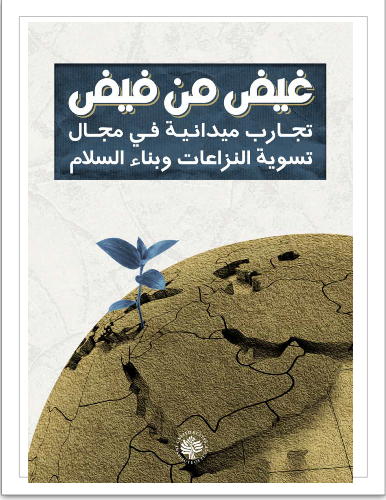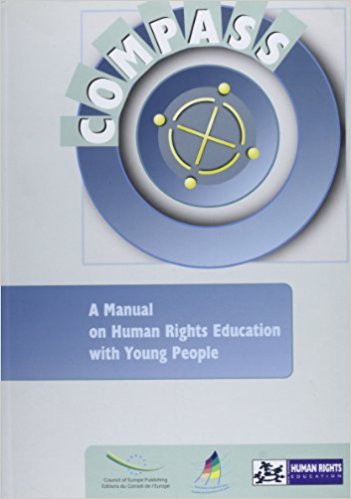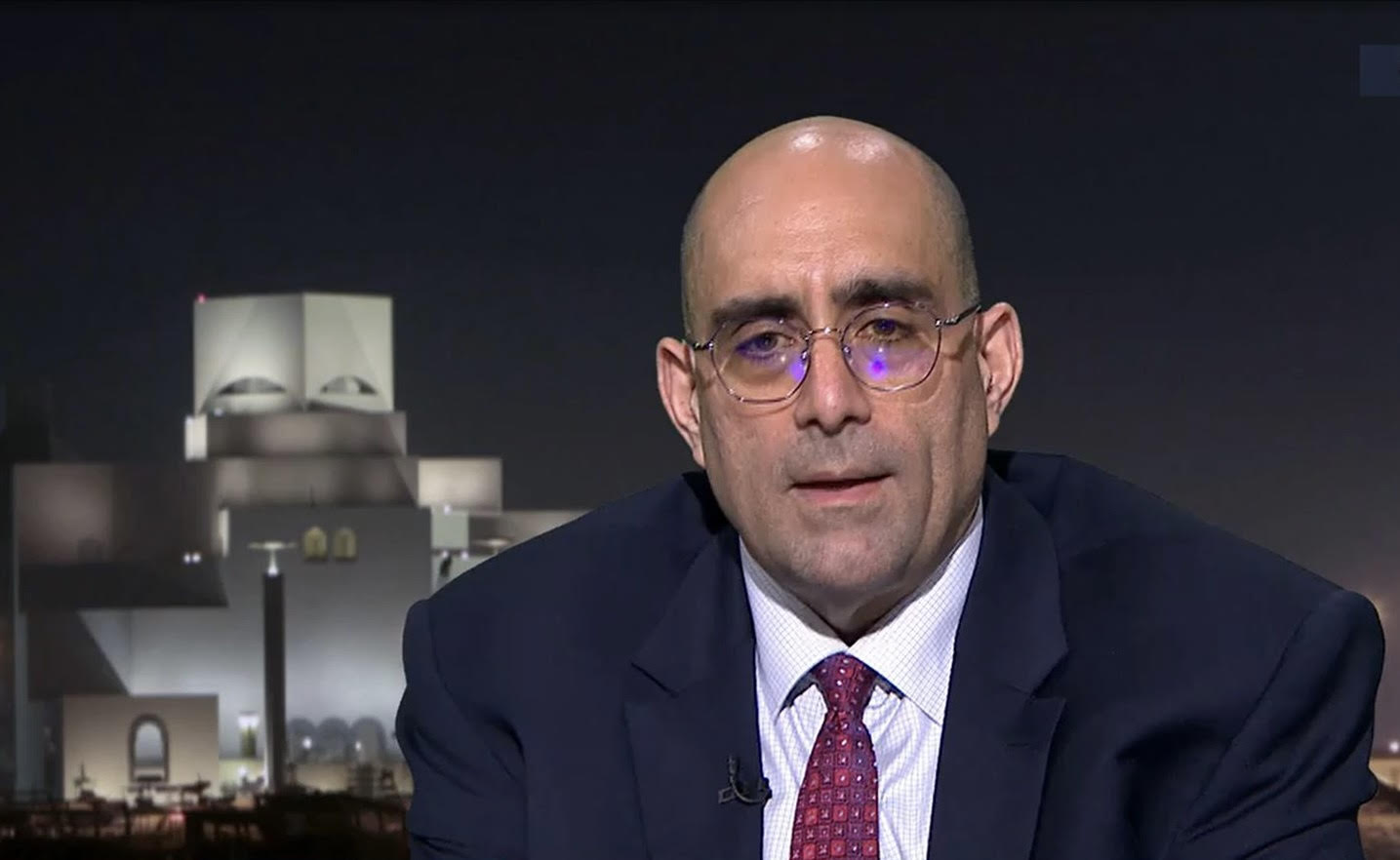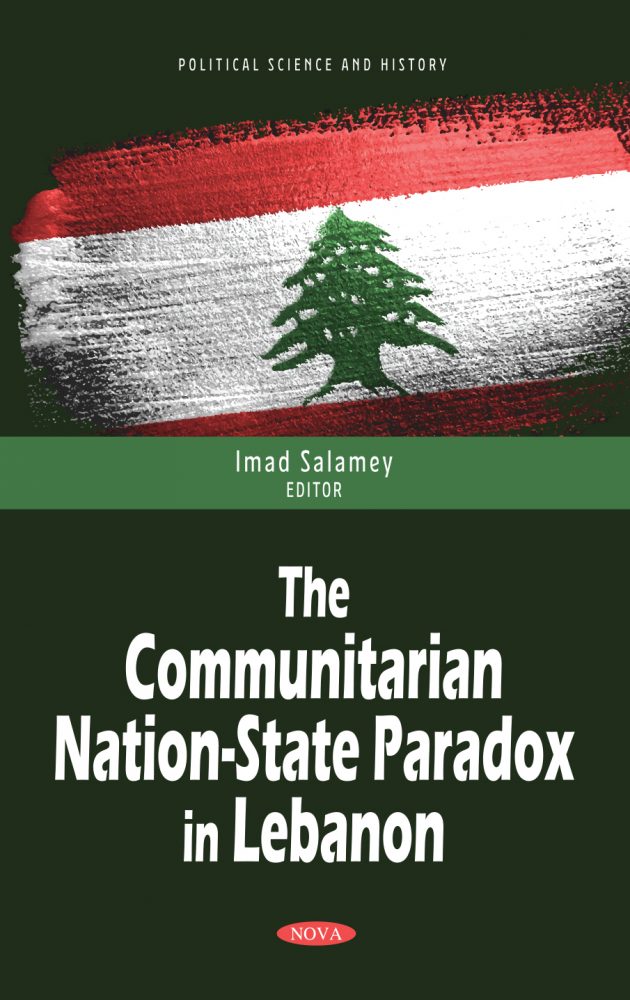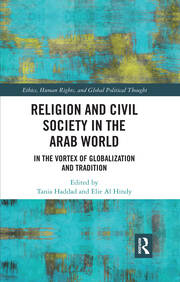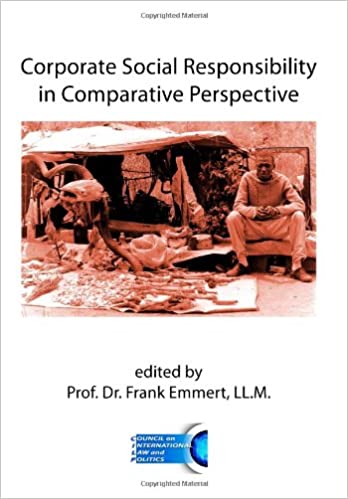Resource Book Regional Facilitators Practitioners Guide Arabic
التمهيد
ُ ّشــك َّ ل كلّ مــن ترســيم حــدود الــدول املشــوه والسياســات
ي
االســتعامرية وتأســيس دولــة إرسائيــل باإلضافــة إىل عوامــل
ّ أخــرى أحــد األســباب التــي أد ِّ ت إىل الوضــع املــروع الحــايل يف
ّـى الـدول التـي
منطقـة الـرق األوسـط وشـال إفريقيـا. فحت
نجــت مــن بــاء العنــف املســتوطن، تــرزح تحــت نــر ّ حــك ٍ ام
طغــاة فاســدين بعضهــم يختبــئ وراء قنــاع القوميــة العلامنيــة
بينـا تعيـش مجتمعاتهـم تحـت وطـأة حالـة مزمنـة مـن عـدم
االســتقرار واالضطــراب املــدين والقمــع والعنــف واالنقالبــات
العســكرية والتشــتت واالنتفاضــات الشــعبية التــي شــهدتها
املنطقــة يف اآلونــة األخــر ّ ة. متكنــت األنظمــة التــي تأسســت
يف القــرن العرشيــن والشــخصيات التــي تقــف ورائهــا مــن
ّ ّ هــا متك ّ نــت مــن تحقيــق االســتقرار ولكــن
التســويق لفكــرة أن
ّــة خاصــة يف املجتمعــات ذات التعــدد
قمــع النزاعــات الداخلي
العرقـي أو الطائفـي جـاء عـى حسـاب حقـوق االنسـان والتنميـة
ّــة والتــداول الســلمي عــى الســلطة.
A manual on human rights education with young people
Welcome to COMPASS, the manual on human rights education with young people!
We hope that it will provide you with the ideas, inspiration and motivation to venture into the field of human rights education with young people. COMPASS has been produced within the framework of the Human Rights Education Youth Programme of the Directorate of Youth and Sport of the Council of Europe, which was launched in 2000 on the occasion of the 50th anniversary of the European Convention on Human Rights. The programme aims to put human rights at the centre of youth work and thereby to contribute to the bringing of human rights education into the mainstream.
Islam and Human rights.
Islam and Human Rights: Key Issues for Our Times is a collection of essays edited by Geneive Abdo and authored by Elie Abouaoun, Harith Hasan, Moataz El Fegiery, Mohammad Fadel, Omar Iharchane, Driss Maghraoui, Imad Salamey, and Asma T. Uddin. This publication is part of the Hariri Center’s Islamic Law and Human Rights in the Middle East initiative. By presenting the reader with a range of contemporary thinking on the most pressing issues facing Muslims today, including questions of democracy, free expression, human rights, gender and minority rights, and the notions of legitimate governance, this volume reflects new thinking on these issues.--
Human Rights Organizations in Transition Countries
ABSTRACT
The paper examines the challenges faced by the human rights organizations in the Arab region. It will focus on those challenges resulting from the radical changes that happened since 2011. It will also look into the prospective role of the human rights organizations in the future phases of the political transition.
Post-Conflict Power-Sharing Agreements
The book surveys comparative power sharing models implemented in societies that have faced identity-conflicts, with attention given to post-conflict design. It analyzes the success and pitfalls of international experiences before proposing a model for Syria. Contributors address the central question: which among the set of power-sharing agreements that have helped settle protracted identity-driven armed conflict can provide Syria with a platform for dialogue, negotiation, and conflict mitigation? The comparative analysis advanced in this book extracts lessons from countries such as Bosnia-Herzegovina, India, Iraq, Lebanon, Mali, Northern Ireland, the Philippines and Sudan. The prospect of a post-conflict distribution of power in Syria is then unraveled from different sectarian, ethnic and regional perspectives. The authors also address challenges of peacebuilding such as violent extremism, gender participation, resettlements, retributions, transitional justice, integration of armed groups and regional and international sponsorship.
The Communitarian Nation-State Paradox in Lebanon
Since the foundation of the modern consociational state of Lebanon, the country’s multi-communitarian diversity has contested the distribution of state power and its national identity. Recurring stormy struggles yielded protracted instabilities. Alternatives to power-sharing have, however, awakened fears of repressive unitarian nationalism. This book re-examines the viability of the Lebanese power-sharing arrangement in preserving plurality and providing a common vision for nationhood. Thirteen Lebanese academic scholars offer different views in addressing the paradox of building a nation-state in a multi-communitarian society.
Religion and Civil Society in the Arab World In the Vortex of Globalization and Tradition
This book examines the links between civil society, religion and politics in the Middle East and North Africa region. The chapters in the volume explore the role of religion in shaping and changing the public sphere in regions that are developing and/or in conflict. They also discuss how these relations are reflected on civil society organizations and the role they are expected to play in transitional periods.
This volume:
investigates the conceptual dilemmas regarding what is ‘civil society’ in the Arab world today
examines the dynamic roles of civil society organizations and religion in the Middle East and North Africa
explores the future of the Arab civil society post-‘Arab Spring’ events, and how the latter continues to reshape the demand for democracy in the region.
A comprehensive study of how the Arab civil society has come into being and its changing roles, this eclectic work will be of interest to scholars and researchers of politics, especially political Islam, international relations, Middle East Studies, African Studies, sociology and social anthropology.
Corporate Social Responsibility in Comparative Perspective Paperback – May 25, 2014
Corporate Social Responsibility has been called many things: “a passing social fad, an idea whose time has come, a threat to market capitalism, an intrinsic element of corporate responsibility, or even a key to humanity’s long-term survival” (Horrigan). The only certainty seems indeed to be that nothing is certain. Given the high degree of ambiguity about our subject, the reader may wonder why we had to write (another) book about it and why anyone would want to spend the time to read it. However, there must be something relevant about a subject if over 90% of the largest companies in the Western world are regularly updating their websites and corporate profiles to ensure that they will be seen as socially and environmentally responsible, if over half of all larger companies around the world have produced specific reports about their performance with regard to CSR, if one single news organization – Ethical Performance – can list on their website “more than 590 service providers [in] 57 categories [... as] consultants, academic institutions, rating agencies, ethical auditors, training providers or research organizations” offering to “help writing and designing your latest corporate responsibility report [...] to manage an ethical supply chain programme [... or to provide expertise] on reputation management”, and if a simple entry of “CSR” into the search function of the website of the European Union turns up more than 275,000 documents. Corporate Social Responsibility in Comparative Perspective brings together academics and practitioners from around the world in an analysis of CSR as currently understood in different legal systems and legal cultures. The authors also explore how CSR – as a global phenomenon – should be applied and advanced in future for the greatest common good. Frank Emmert introduces the subject with a historic review and offers a critical outlook in Corporate Social Responsibility - Quo Vadis? Dr. Yilmaz Argüden, the Founder and Chairman of ARGE Consulting in Turkey, explores Civil Society for Good Governance. Peter Gjørtler presents European Union and Danish Perspectives on CSR. Angélique Devaux demonstrates the leading role of France in the EU in her contribution on Corporate Social Responsibility in France. Ying Chen analyses Corporate Social Responsibility from the Chinese Perspective. Salma Taman explores The Concept of Corporate Social Responsibility in Islamic Law. Elie Abouaoun discusses specifically Arab Perspectives on Corporate Social Responsibility and Human Rights. Jeffrey Avina, the Citizenship and Community Affairs Director for Microsoft Middle East and Africa, explains The Evolution of Corporate Social Responsibility During the Arab Spring and Beyond. Finally, Mohamed ‘Arafa elaborates on Corporate Social Responsibility and the Fight Against Corruption, with specific references to the 2011 Revolution in Egypt. The contributions were originally presented for discussion at conferences organized by the Robert H. McKinney School of Law and its Indiana International & Comparative Law Review and by the Protection Project of the School of Advanced International Studies of Johns Hopkins University. They have been expanded and updated for this publication.

